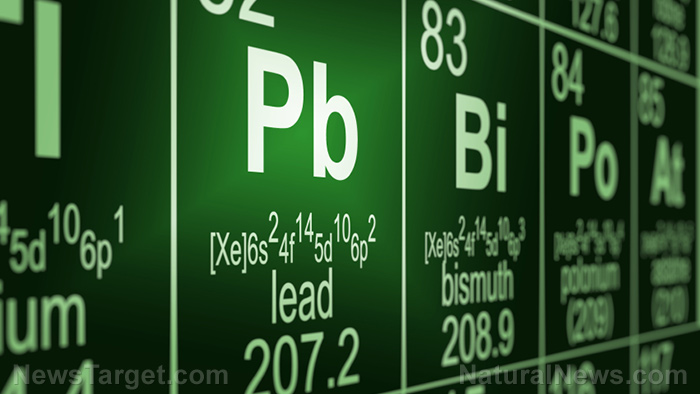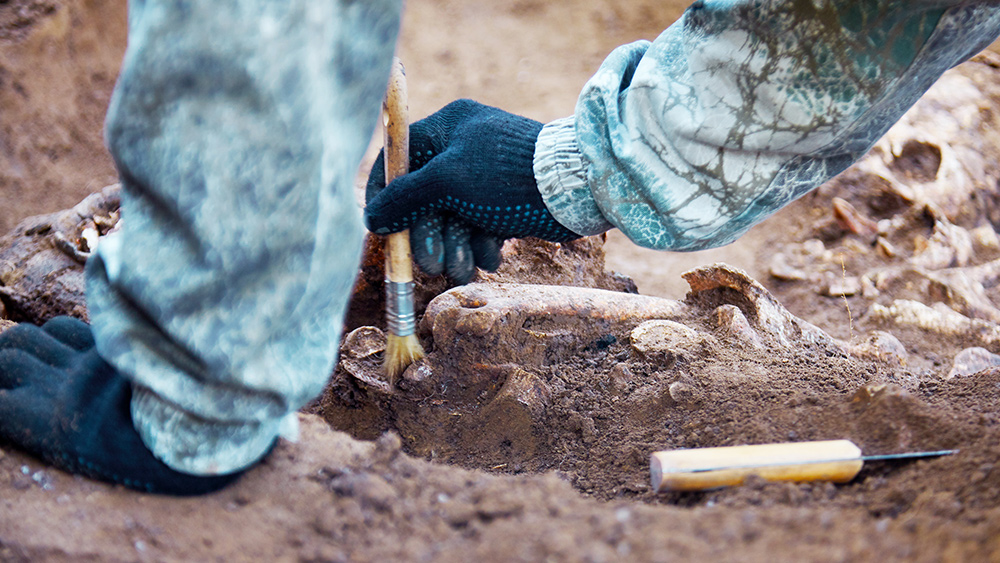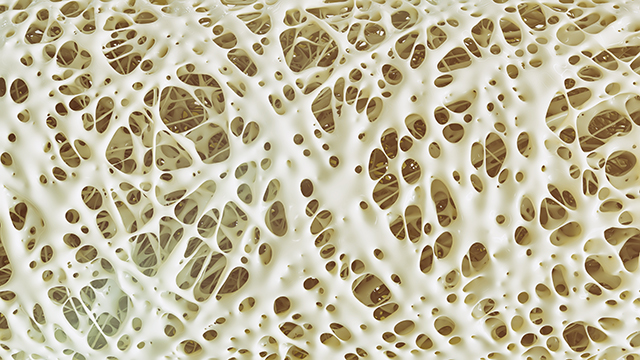Epoch Times, Zero Hedge recommend “shilajit” substance to “enhance brain function” without warning readers of alarming lead, arsenic and aluminum content found in many brands
03/20/2024 / By Ethan Huff

Two of the most well-known independent media sources, the Epoch Times and Zero Hedge, are promoting a substance called “shilajit” that they claim has been “used for centuries in healing.” What neither outlet is revealing, however, is the fact that tests show some sources of shilajit to be questionably high in lead, arsenic, aluminum and other toxic metals.
The Health Ranger uploaded a video report to Brighteon.com this week explaining the potential dangers of shilajit consumption, depending on its source, which he also warned about back in 2016 following a series of lab tests on the substance from different brands.
“Shilajit has alarming levels of heavy metals, at least the samples that we tested,” the Health Ranger explains in the video below. “We started to [test] back in 2016, and we published test results.”
“We conducted tests on multiple brands of shilajit – eight different brands – and we found what I would consider to be shockingly high levels of aluminum and lead and arsenic in some of the samples.”
Those test results are available here for those who wish to see the full breakdown of what was found in different brands of shilajit.
Is shilajit really a dietary product?
Though commonly marketed as a dietary supplement, the Health Ranger believes that shilajit does not technically qualify as such because it is not an agricultural product; it is not a plant; and it is not grown – though it does derive from decomposed plant matter.
“These are essentially mined minerals – or in the case of shilajit, they are scraped from between the rocks,” the Health Ranger says. “They’re basically harvesting rock tar, or some kind of tar.”
In his lab’s 2016 testing, one brand of shilajit was found to contain 1,300 parts per million (ppm) of aluminum, while another had more than 2.8 ppm, or over 2,800 parts per billion (ppb), of lead.
According to The Epoch Times and Zero Hedge, which more than likely do not know about these test results, shilajit is “nature’s ancient elixir,” having been used for centuries in Ayurveda medicine to heal. But are they aware that some brands of shilajit could be contaminated with harmful substances?
“High in the Himalayas, shilajit seeps from the rocks, a tar-like byproduct of centuries-old decomposed plant matter,” their report explains.
“With a composition rich in minerals, fulvic acid, and humic acids, it occupies a revered spot in Ayurvedic medicine as a ‘Rasayana,’ aimed at promoting longevity and revitalizing the body and mind.”
An Ayurvedic doctor named Sruthi Bhat praised shilajit for providing what she described as a broad spectrum of health benefits, telling the Times that the substance’s “unique composition” provides “a plethora of health benefits.”
“Shilajit serves as a versatile tonic for overall health and well-being, targeting multiple systems of the body to promote vitality and resilience,” Bhat added.
Are there untainted forms of shilajit?
As with any dietary or health product, there are good sources and bad sources. Some might be contaminated while others are clean and free of toxins, as demonstrated in scientific tests.
A pure source of shilajit reportedly contains more than 85 minerals, vitamins and phytonutrients. Fulvic acid is one of shilajit’s primary components, helping the body to better absorb nutrients, produce more energy and detoxify – but is all of this rendered moot because of the presence of harmful elements?
Check your supplements’ lab results
The purpose of this article is not to scare you from using shilajit or any other dietary supplement. There may, in fact, be pure sources of shilajit that do not contain abnormally high levels of toxic metals. What this article aims to do is make you aware of the fact that not all supplements are the same, including shilajit supplements.
It should also be noted that in vitro tests, meaning tests conducted in a lab setting, are not always interchangeable with in vivo tests, meaning tests conducted on actual humans. Depending on the ionic “charge” of an apparent contaminant, its presence inside a substance like shilajit could actually attract oppositely charged contaminants of the same kind within the body, helping to pull them out of the body via detoxification.
There is certainly a lot more investigative work needed on substances like shilajit to determine how they affect the body as a whole, but let this serve as a warning to our readers to beware of supplements you purchase and whenever possible look for lab test results to determine their safety, even on a batch-by-batch basis.
If you are interested in learning more about the Health Ranger’s lab equipment and testing methods, be sure to check out his earlier report from 2016.
The Health Ranger believes that the best source of minerals is plants, not rocks or rock derivatives, which is how he classifies shilajit. Beware, though, that even plants can uptake toxic metals as well due to soil contamination – we live in a toxic world, after all.
If you enjoyed reading this report, you will find more like it at CensoredScience.com.
Sources for this article include:
Submit a correction >>
Tagged Under:
contaminated, metals, poison, products, real investigations, research, safety testing, shilajit, supplements, The Epoch Times, toxins, Zero Hedge
This article may contain statements that reflect the opinion of the author
RECENT NEWS & ARTICLES
COPYRIGHT © 2017 RESEARCH NEWS





















